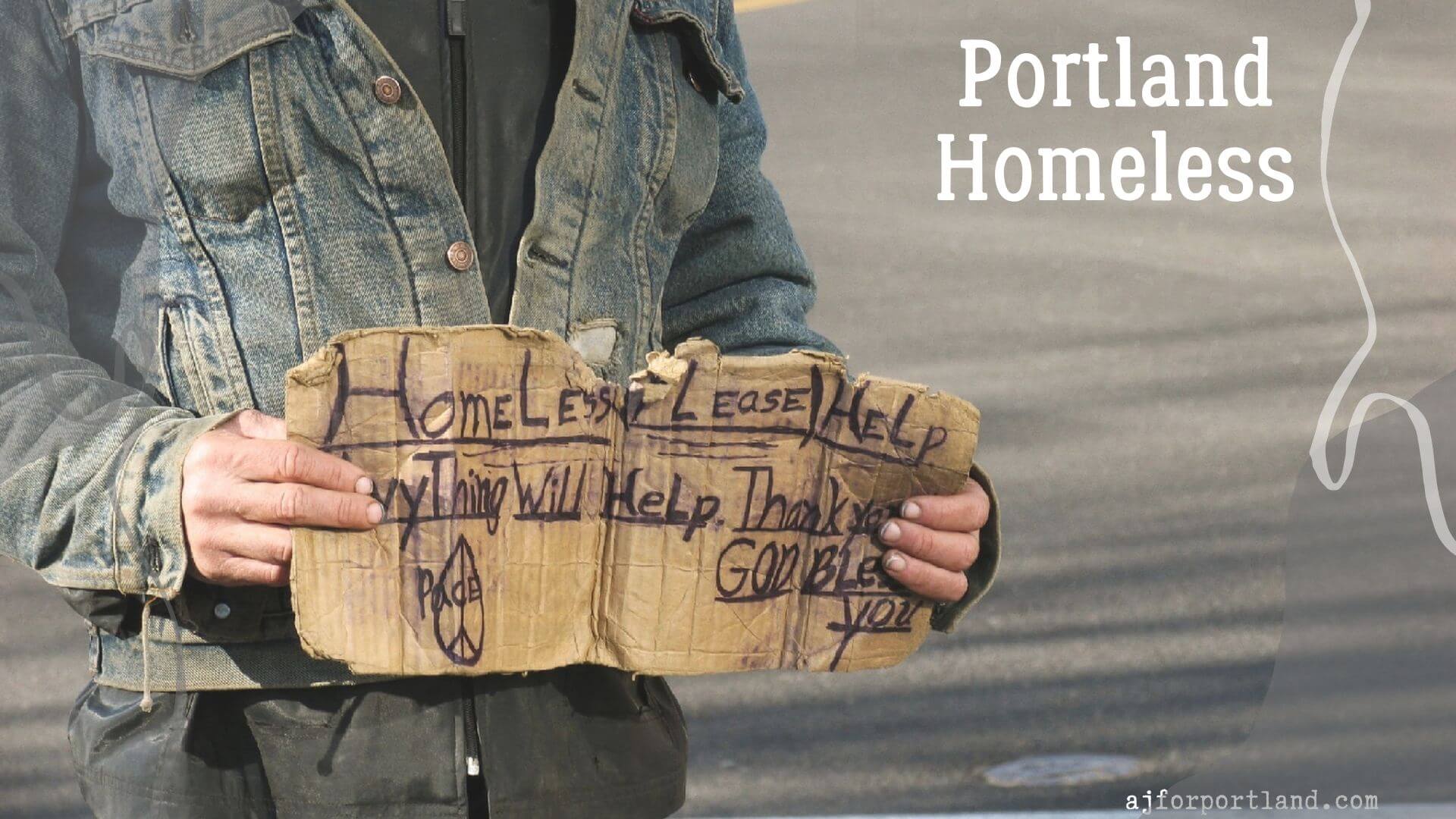Homelessness is a complex and pressing issue that affects many communities across the United States, including Portland, Oregon. In recent years, the number of people experiencing homelessness in Portland has continued to rise, and the issue has become increasingly visible through the presence of homeless camps throughout the city. The situation has sparked debates and controversies, with some advocating for more resources and support for those experiencing homelessness, while others express concerns about public safety and the impact on the community. In this article, we will explore the issue of homelessness in Portland, including statistics and trends, the situation with homeless camps, and efforts to address the crisis. We will also examine the role of government and community organizations, resources and support available to those in need, and ways individuals and organizations can help address this pressing issue.
Statistics and Trends Homelessness in Portland
Homelessness is a significant issue in Portland, Oregon, and the numbers have continued to rise in recent years. According to the 2021 Point-in-Time count, which is conducted annually by the Joint Office of Homeless Services, there were 4,015 people experiencing homelessness in Multnomah County, where Portland is located. This represents a 4% increase from the previous year’s count.
The majority of people experiencing homelessness in Portland are unsheltered, meaning they are living on the streets, in parks, or in other public places. According to the 2021 Point-in-Time count, 2,037 people were unsheltered, while 1,978 were in emergency shelters or transitional housing.
The issue of homelessness in Portland is complex and multifaceted, and it is influenced by a variety of factors, including the high cost of housing, limited affordable housing options, mental health and addiction issues, and systemic inequalities.
Despite the challenges, there are efforts underway to address the issue of homelessness in Portland. The city and county have implemented a variety of programs and initiatives to provide housing and services to those experiencing homelessness, and there are many community organizations and advocates working to support this vulnerable population.
Portland Homeless Camps
Portland, Oregon, is known for its visible homeless camps, which are scattered throughout the city. These camps are often made up of tents and makeshift shelters and are located in parks, under bridges, and along highways.
The presence of homeless camps has sparked debates and controversies in Portland, with some advocating for more resources and support for those experiencing homelessness, while others express concerns about public safety and the impact on the community.
One of the main challenges with homeless camps is the lack of access to basic amenities and services, such as running water, sanitation facilities, and healthcare. This can lead to health and safety concerns for those living in the camps, as well as for the broader community.
In response to the issue of homeless camps, the city of Portland has implemented a variety of programs and initiatives aimed at addressing the crisis. These include the Safe Sleep Policy, which allows people to sleep in tents and other temporary shelters on public property, and the Joint Office of Homeless Services, which coordinates services and resources for those experiencing homelessness.
However, the issue of homeless camps remains complex and challenging, and there are ongoing debates and controversies about the best way to address the crisis.
Efforts to Address Homelessness in Portland: Programs and Initiatives
Efforts to address homelessness in Portland, Oregon, involve a variety of programs and initiatives aimed at providing housing and services to those experiencing homelessness. Here are some examples:
- Housing First: This approach prioritizes getting people into permanent housing as quickly as possible, without preconditions such as sobriety or employment. Housing First programs in Portland provide supportive services such as case management and healthcare to help people maintain their housing.
- Joint Office of Homeless Services: This office coordinates services and resources for those experiencing homelessness in Multnomah County, where Portland is located. The Joint Office oversees a variety of programs, including outreach and engagement, emergency shelter, transitional housing, and permanent supportive housing.
- Homeless Youth Continuum: This program provides services and resources to young people experiencing homelessness, including emergency shelter, transitional housing, and support for education and employment.
- Safe Sleep Policy: This policy allows people to sleep in tents and other temporary shelters on public property in Portland, as long as they follow certain guidelines, such as not blocking sidewalks or public rights-of-way.
- Street Roots: This newspaper provides employment and support to people experiencing homelessness and poverty in Portland. Street Roots vendors sell the paper on street corners throughout the city, providing a source of income and community.
The Role of Government and Community Organizations in Portland’s Homelessness Crisis
The issue of homelessness in Portland, Oregon, requires a coordinated effort between government agencies and community organizations. Here are some ways in which these groups are working to address the crisis:
- Government Agencies: The city of Portland and Multnomah County have established several initiatives to address homelessness, including the Joint Office of Homeless Services and the Portland Homeless Family Solutions program. These initiatives provide resources such as emergency shelter, transitional housing, and permanent supportive housing, as well as outreach and engagement services to help people connect with these resources.
- Community Organizations: There are many community organizations in Portland that are working to address homelessness, such as Street Roots, Sisters of the Road, and JOIN. These organizations provide a variety of services, including meals, showers, case management, and support for employment and education. They also work to raise awareness about the issue of homelessness and advocate for policy changes to address the root causes of the crisis.
- Public-Private Partnerships: In addition to government agencies and community organizations, there are several public-private partnerships working to address homelessness in Portland. For example, the Portland Housing Bureau partners with private developers to create affordable housing units, while the Portland Business Alliance supports programs that provide job training and employment opportunities to people experiencing homelessness.
The role of government and community organizations in addressing homelessness in Portland is critical. By working together and leveraging their resources and expertise, these groups can provide the necessary support and services to help people experiencing homelessness rebuild their lives and find stable housing.
Portland’s Homelessness Crisis in the Context of National Trends and Policies
Portland’s homelessness crisis is not unique to the city, but rather part of a larger national trend. According to the National Alliance to End Homelessness, there were an estimated 580,466 people experiencing homelessness in the United States in January 2020.
Homelessness is influenced by a variety of factors, including the high cost of housing, limited affordable housing options, systemic inequalities, and mental health and addiction issues. These factors are present not only in Portland but also in many other cities and regions across the country.
The federal government has established several programs and policies aimed at addressing homelessness, such as the Continuum of Care program and the Housing Choice Voucher program. However, these programs have faced funding challenges and are often insufficient to meet the scale of the homelessness crisis.
In recent years, there has been increased attention to the issue of homelessness at the national level. The Biden administration has proposed a $5 billion investment in housing assistance for people experiencing homelessness, and there are ongoing efforts to address systemic issues such as racial inequality and housing affordability.
In the context of national trends and policies, the homelessness crisis in Portland is an urgent and pressing issue. It requires a coordinated effort between government agencies, community organizations, and public-private partnerships to provide resources and services to those experiencing homelessness and address the root causes of the crisis.
The Bottom Line The issue of homelessness in Portland, Oregon, is a complex and multifaceted crisis that has been increasing in recent years. The city has a visible homeless population and a large number of homeless camps scattered throughout the city, leading to debates and controversies. However, there are ongoing efforts to address the crisis through a variety of programs and initiatives, including Housing First, the Joint Office of Homeless Services, and the Safe Sleep Policy. The government agencies, community organizations, and public-private partnerships are working together to provide resources and services to those experiencing homelessness in Portland. Additionally, the issue of homelessness in Portland is not unique to the city but rather part of a larger national trend, which requires a coordinated effort at the national level to address systemic issues such as housing affordability and racial


